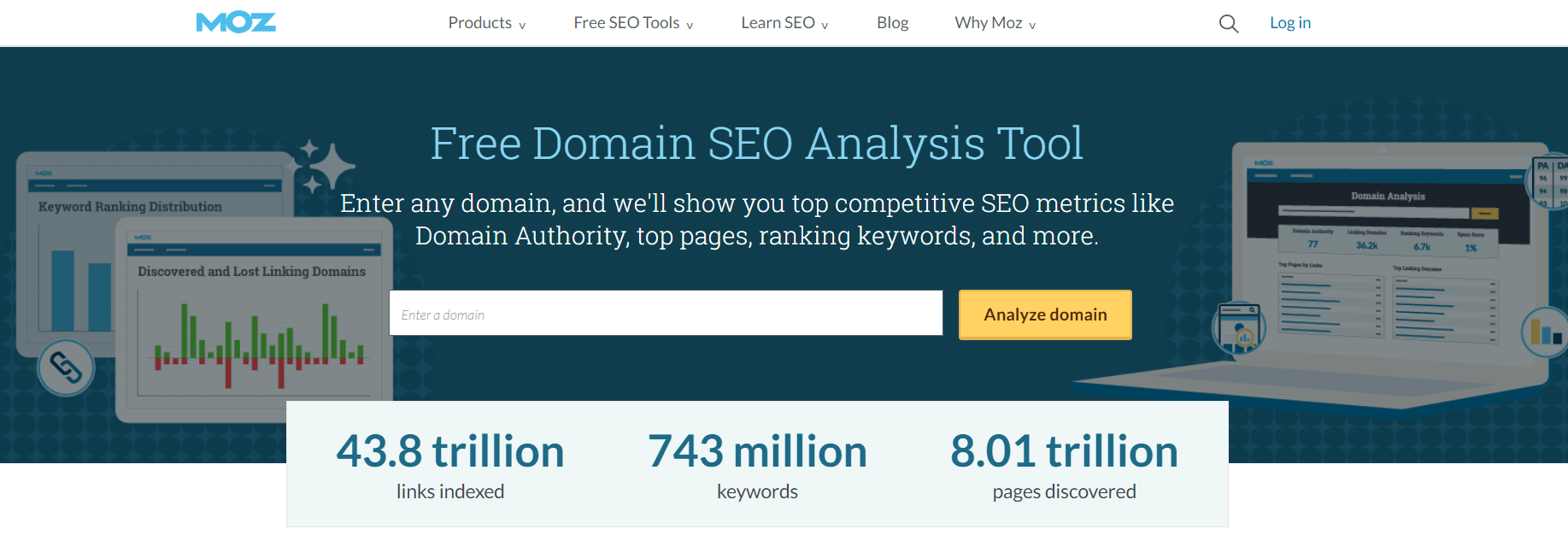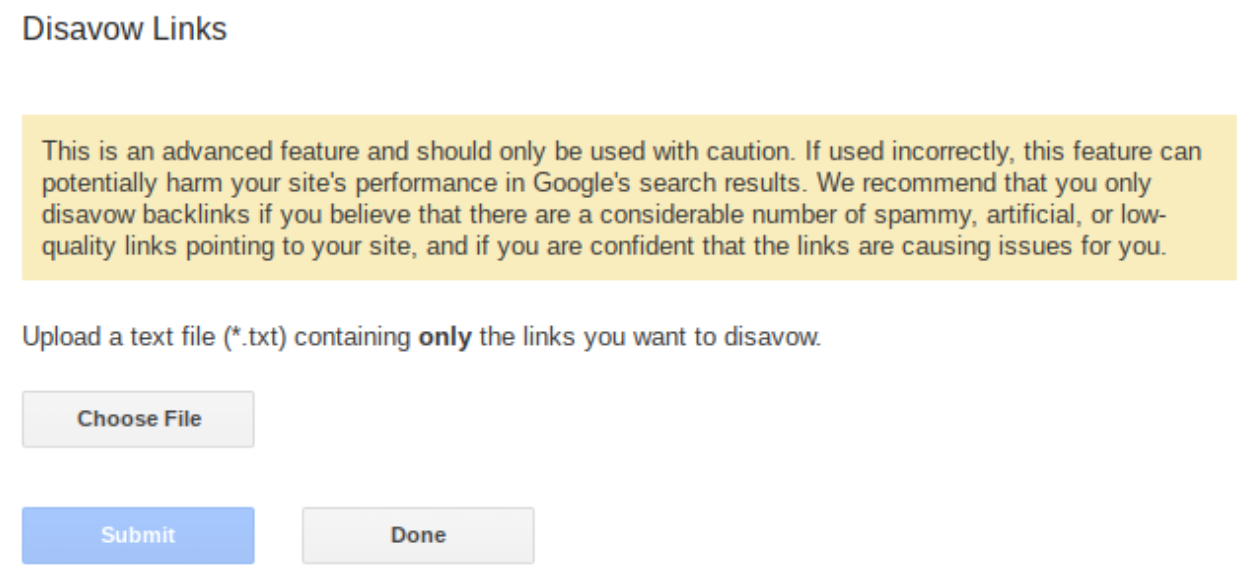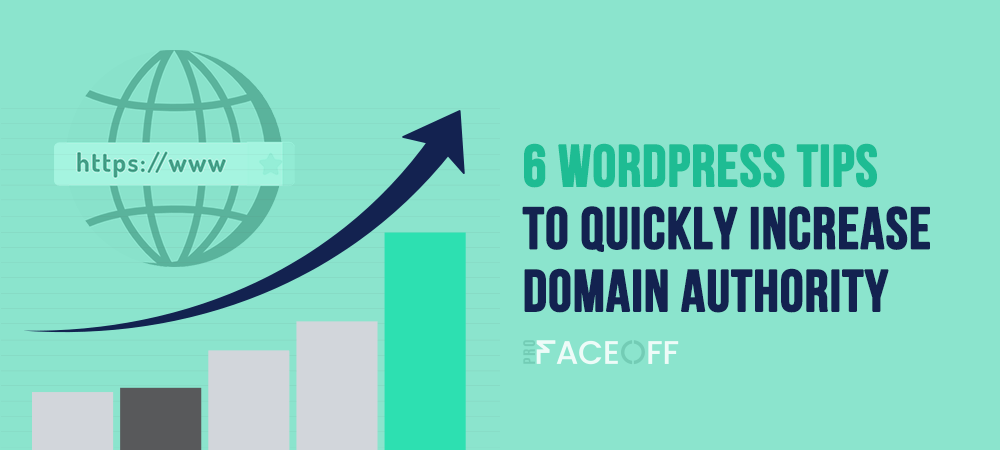Domain authority is considered the key factor measuring the success or failure of your WordPress site. It calculates your site’s trustworthiness, performance, and competitive advantages.
The higher your domain authority is, the more trust you will gain from search engines as well as your visitors. That’s why as a website owner, finding ways to increase domain authority score should be one of the top priorities.
But what is domain authority? And how can you improve it?
This article will shed light on different aspects of domain authority to give you an in-depth understanding of the issue. And most importantly, we’ll suggest 6 ways to help you increase domain authority faster.
Let’s hash it out!
- What Is Domain Authority?
- How Is Domain Authority Calculated?
- What Is a Good Domain Authority?
- How Do You Check Domain Authority?
- How Important Is Domain Authority?
- How Can You Increase Domain Authority Score?
- #1 Build High-Quality Backlinks from Authority Sites
- #2 Write Powerful Content
- #3 Eliminate Toxic Links
- #4 Improve Social Engagement
- #5 Optimize Internal Links
- #6 Enhance User Experience
What Is Domain Authority?
Domain authority refers to a search engine ranking metric designed by Moz that measures how reliable and successful a site is.
A website’s domain authority scores range from 1 to 100. This number is used to predict how well your website will rank on search engine page results (SERPs).
Higher domain authority usually comes with a greater likelihood of ranking. Simply put, if your site has a high score, it’ll have a better chance of being ranked on SERPs.
But remember that domain authority is not a ranking factor and has no effect on your SERPs ranking. In other words, increasing domain authority will not boost your SEO.
Even though the authority score doesn’t directly impact your SEO ranking, it can influence the results of your SEO campaigns. So, understanding your domain authority allows you to make sound decisions on how to advance your marketing plans.
How Is Domain Authority Calculated?
Domain authority is evaluated based on over 40 factors, including quality backlinks, content’s quality, social signals, SEO performance, and root domains.
That is to say, websites with more high-quality backlinks tend to have higher domain authority. And vice versa, websites with little to no relevant inbound links may receive a lower score.
Additionally, the score comes from a machine learning algorithm’s predictions about the frequency that Google uses that domain in its search results. So, if domain A is more likely to appear in Google SERPs than domain B, then A’s domain authority is probably higher than B’s.
As a result, your domain authority can also decrease when other high-authority websites get a lot of backlinks.
To illustrate, if Facebook.com acquired a huge number of new links, every other site’s domain authority would decline relative to Facebook’s.
Because Facebook has increasingly larger link profiles, they take up more of the high-domain-authority slots. It leaves less room at the higher end of the scale for other domains with less robust link profiles.
Therefore, it’s easier to raise domain authority from 10 to 20 than to push your score once you’re higher in the rankings.
What Is a Good Domain Authority?
As mentioned before, domain authority is scored on a scale of 1 to 100. 1 is the worst and 100 is the best.
To define whether your website has a good domain authority score, analyze:
- Below 30 are poor.
- 30 to 40 are below average.
- Between 40 and 50 are average.
- 50 to 60 are rated as good.
- Above 60 are excellent.
It is also necessary to acknowledge that those numbers are not absolutely credible. It may vary according to different circumstances.
For example, if you are the owner of a small business website with SEO, getting a score of around 40 can be considered very good.
However, the requirement changes for larger sites. With more work and investment power, you have to achieve greater scores, ideally above 60.
How Do You Check Domain Authority?
There are numerous free online tools to check your domain authority. To make it easier for you, we suggest using Moz’s Domain SEO Analysis Tool.

It offers a simple solution to check your domain authority, top pages, ranking keywords, etc. All you need to do is simply copy and paste your website’s link and click Analyze domain. The tool will do the rest. The coolest thing is that it enables you to check your competitors’ domain authority.
How Important Is Domain Authority?
Domain authority is important as it represents your site’s ability to gain organic traffic from search engines. It gives you an understanding of your site’s credibility in the search engines’ eyes.
Google desires to provide its users with reliable information and results, which means you can attract more customers through organic search thanks to the higher authority score.
If Google doesn’t find your website trustworthy, you will rarely make it to the top of SERPs for any of your target keywords. Consequently, it hurts your ability to reach customers online.
What’s more, you can see how well you’re doing compared to your competitors, thereby deploying proper strategies.
So, those are the reasons why you should increase domain authority.
How Can You Increase Domain Authority Score?
You’ve known the significance of domain authority. Now it’s time to discover tips for improving it. In this section, we’ll walk you through 6 effective ways to increase domain authority.
#1 Build High-Quality Backlinks from Authority Sites
Backlinks or inbound links are key elements used to evaluate your domain authority. They are links from other sites to a page or post on your site.

The number of backlinks reflects the number of sites trusting yours for reference information. That’s why getting as many backlinks as possible is an excellent way to make domain authority grow.
But should you get backlinks from any site? Not really. To raise domain authority, you need fruitful backlinks from high-authority sites.
Outreaching other websites for guest posts, sponsored blogs, advertisements, or collaboration might be a perfect solution. Hence, it requires a suitable and efficient outreach campaign targeting relevant sites.
#2 Write Powerful Content
Taking an extra effort to improve your content, such as on-site blogs, pages, and old articles may seem challenging at first. But it’s totally worth your effort because there will be no authority without content.
Content is the weapon that helps your site rank. The more ranking content, the higher authority score. In short, you have to produce captivating content on a regular basis.
Plus, useful content keeps people looking for and referring to your site. This will open the door to placing backlinks on reputable websites.
To make killer content, bear in mind that you should:
- Add things that are valuable to your audience.
- Keep it updated.
- Choose powerful and relevant keywords.
- Visualize your content.
#3 Eliminate Toxic Links
Pretty much every link which is irrelevant to your website falls in the category of toxic backlinks. Here are some bad backlink types to stay away:
- Links from penalized and spammy domains.
- Links from black-list websites like porn, online gambling, etc.
- Links from foreign language websites.
- Links from unrelated websites.
- A large number of exact-match anchor text links.
These links affect your website’s domain authority badly. In some cases, it can even result in a penalty from Google.
To avoid that from happening, you must remove these links. Rejecting backlinks from spammy and low-quality sites will keep the spam score low, which in turn will help you promote domain authority.
First, detect the origin of the toxic links by using tools like Moz, Ahrefs, SEMRush, and Monitor Backlinks. Then request removal from these websites.
What if you can’t ask for link removal? You can use Google Search Console to dismiss or ignore these links.

#4 Improve Social Engagement
Although Google has officially announced that social signals are not part of the ranking factors, there is a close connection between high-ranking sites on Google and social signals. Sites that have many likes, shares, and tweets on social networks tend to achieve high domain authority scores.
Social channels are a simple yet powerful means to bring traffic to your website. Besides, they help you get noticed by the big players too, which is important for smaller websites. That way, you can easily obtain domain authority.
To improve social engagement, remember:
- To ensure your content is easy to share by adding social icons to your website.
- To make sure that your content looks good on social networks once shared.
- To work on your social accounts and try to attract more followers.
- To encourage people to interact with your content by email marketing campaigns. For instance, share blog updates with your audience via emails.
#5 Optimize Internal Links
Another route to impressive domain authority is focusing on your internal link structure. An internal link connects one page with a different page on your website. Internal link building aims for 3 main goals:
- Improve web navigation. With links directed to other relevant informative pages on your site, you can keep your audience engaged and limit the bounce rate.
- Define the content roadmap and hierarchy of your website. This allows search engine bots to crawl your website, which helps in indexing your pages.
- Distribute page authority and ranking power throughout the site.
All of these add up to increasing domain authority. To optimize your internal linking strategy, you can use a plugin like All in One SEO.
#6 Enhance User Experience
Google ranks down slow websites. That’s why taking care of your site speed and ensuring a user-friendly interface can be the best practice to push domain authority.
If your site performs poorly, chances are that other sites won’t link back to your site, no matter how engaging your content is.
To speed up your website loading time, try to:
- Resize your images.
- Utilize CDN.
- Completely uninstall unused plugins and themes.
- Optimize browser caching.
- Use a suitable web server.
- Block spam comments.
- Update to the latest version of PHP.
- Choose a lightweight theme.
Increase Domain Authority to Achieve More!
With a high domain authority score, your WordPress site will have a better chance of being ranked on SERPs.
You can’t increase domain authority of your WordPress site overnight. But with research and effort, it will progress quickly. So, build a strategy and utilize the 6 tips we’ve mentioned to gain dreamy domain authority.
Let’s get started now!
